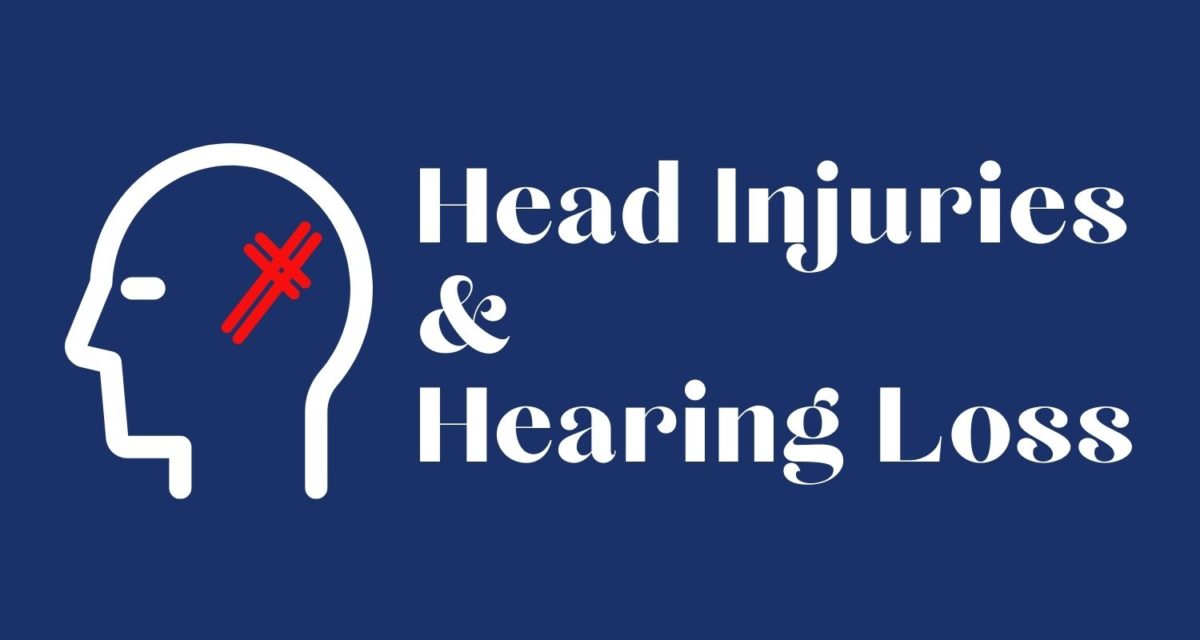
Head Injuries & Hearing Loss
While hearing loss is a condition that may not initially seem as serious as other chronic health issues, such as diabetes or cardiovascular disease, its effects are far-reaching. Ultimately, hearing loss is a communication issue. It often begins slowly but over years it can turn into a rift in your closest relationships, missed job opportunities, and lack of mobility due to less awareness in the world surrounding you. Most people are aware that hearing loss can be caused by exposure to loud noise, but did you know that head injuries can also cause hearing damage?
Who is at Risk for Head Injuries?
Everyone is at risk for head injuries, so it’s important to take steps to protect yourself. Whenever you ride in a car, make sure to wear your seatbelt. The Center for Disease Control (CDC) reports that 30% of all injury-related deaths are contributed to traumatic brain injuries and more than 14% are the direct result of automobile accidents.
Similarly, if you like to ride a bike, a skateboard, snowboard, roller-skate, surf or hoverboard it is always a good idea to wear a helmet and if you play a team sport such as football or lacrosse a helmet is just part of the attire. However, even if you don’t consider yourself a professional athlete you should still prioritize protective headgear. The Centers for Disease Control and Prevention (CDC), reports that approximately “1.6-3.8 million sports and recreation-related concussions occur each year in the U.S and 10% of all contact sport athletes sustain concussions yearly. Brain injuries cause more deaths than any other sports injury.”
What Are Head Injuries and How Severe Are They?
A head injury describes any impact that occurs to the head, scalp, skull, brain, and underlying tissue and blood vessels in the head. Depending on the impact of the blow they can result in varying degrees of severity.
Concussion: a minor brain injury caused by shaking, an impact to the head, or a sudden change in movement.
Brain contusion: occurs when breaking and leaking of small blood vessels cause brain tissue to be bruised, due to an impact to the head. When the brain suffers contusion, the brain is usually damaged directly under the site of impact, though it can occur on either side as the brain can sustain damage from hitting the opposing side of the skull.
Penetrating Brain Injury: Sometimes an impact can be so severe that it causes the skull to crack which is known as a penetrating brain injury. All these conditions are considered traumatic brain injuries (TBI) and can have varying side effects including loss of consciousness, confusion, tiredness, emotional distress, agitation, and hearing loss.
Head Injuries & Hearing Loss
While we hear with our ears, it is the ears’ job to interface with our brains to transmit audio information. Hearing loss occurs when there is a disconnect between the ears and the brain. Most commonly, sensorineural hearing loss occurs when tiny hair-like cells called stereocilia are damaged or destroyed. Stereocilia function as the delivery system between the ears and the brain and are incredibly fragile and unfortunately currently impossible to repair. There are several causes of hearing loss such as exposure to noise, chronic ear infections, exposure to certain chemicals, and changes to the inner ear as we age. Impact on the head also has the potential to damage the delicate inner workings of the inner ears. Brute force can damage stereocilia or even rupture an eardrum or restrict blood flow, reducing the amount of sound that can be received by the auditory cortex in the brain.
Treating Hearing Loss
If you have suffered a head injury, then it is important to have your hearing assessed. It is all too common to go years without even knowing you have a hearing issue, meanwhile, it continues to detract from your quality of life. If you have ever suffered a head injury, make sure to schedule a hearing test with us today. We will be able to assess the severity of hearing loss in each ear and recommend a treatment that will suit your individual needs. The most common treatment is hearing aids, which amplify the sounds you struggle with, allowing you to enjoy conversing and stay active for years to come. Together we can help you find the best solution for all your listening needs so contact us today.
